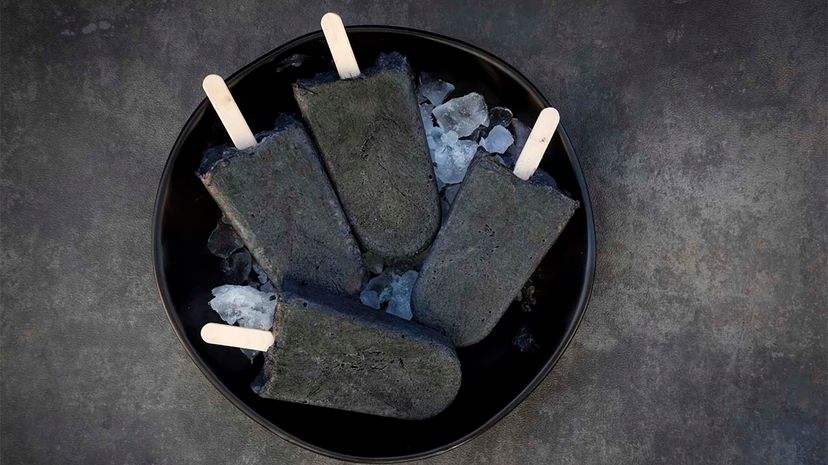
Maybe you don't cringe at charcoal concoctions that turn your teeth temporarily black in the pursuit of gleaming chiclets. But charcoal smoothies? If a line must be drawn, perhaps swilling a thick, earthy smoothie the unappealing hue of a mud puddle presents just such an opportunity.
Activated charcoal, the same stuff left over after you grill a great steak, is making its way into everything from smoothies and juices to pasta and bread. It's widely touted as having detoxifying properties, and in some cases, this is true.
Advertisement
You'll find activated charcoal in water filters, toothpastes and facial cleansers, where it does trap pollutants. Its sponge-like ability to retain certain chemicals and toxins is why it is used as an emergency treatment for poisonings or overdoses. A small, 50-gram dose of activated charcoal has the surface area of about seven football fields. That's a lot of little nooks and crannies that can be used for absorption, all created by the high-heat burning of wood or coconut to create an ingestible carbon.
Activated charcoal's super powers are, however, relegated to the digestive tract. Sure, it can work as a powerful deep cleaner on surfaces like teeth and skin, but it really shines by trapping poisons anywhere along the journey from ingestion to expulsion.
There are misguided assumptions fueling the charcoal-taking trend, including the idea that the substance can absorb any toxin in the body to improve your overall health. Adding activated charcoal to food and drink for frequent use could actually cause nutritional issues because it indiscriminately absorbs vitamins and minerals, too.
"Activated charcoal doesn't decipher between toxins and good nutrients, so taking it too regularly or with food means that the charcoal will also absorb the nutrients in your system," nutritionist Pip Reed told The Huffington Post.
Maybe we'll just stick to fruity, green smoothies after all.
Advertisement
